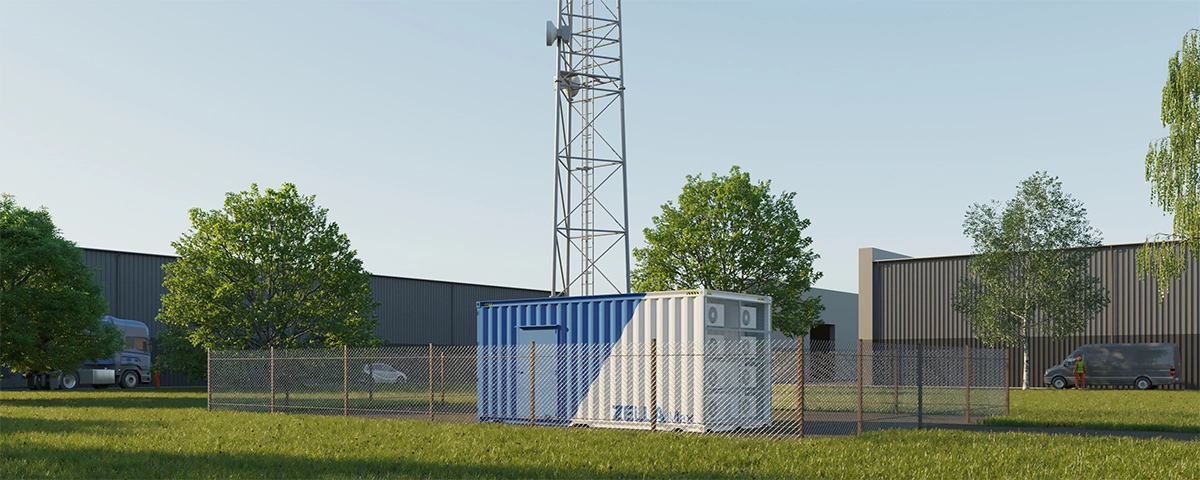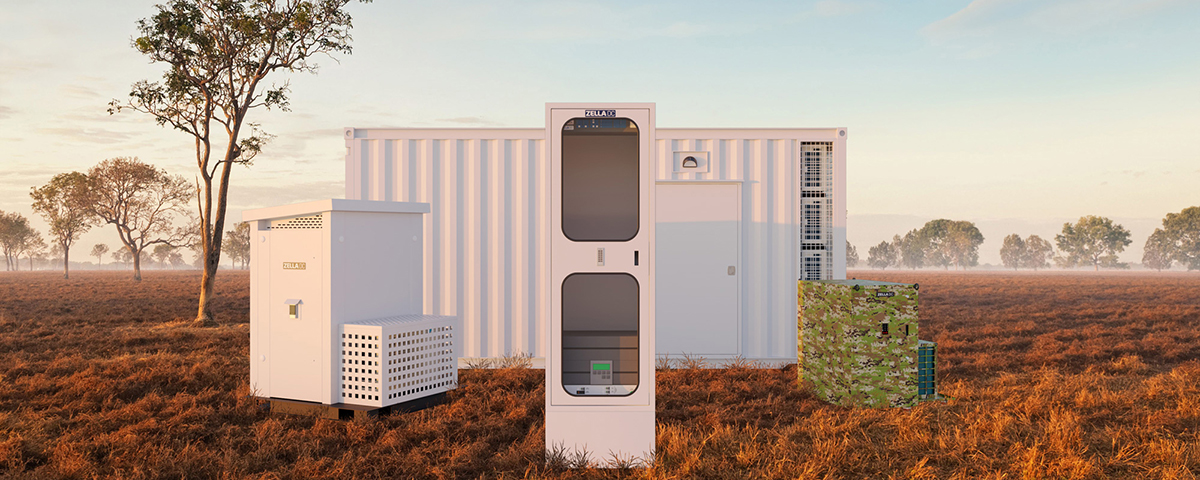The containerised data centre market is a rapidly growing sector, with a projected compound annual growth rate of over 25% between 2021 and 2026. According to a recent report by MarketsandMarkets, the containerised data centre market is expected to reach $8.5 billion by 2026, up from $2.5 billion in 2021. So why are containerised data centres so popular?
Scalability
Containerised data centres are highly scalable, meaning that they can easily adjust to changing business needs without incurring significant downtime or additional costs. This scalability is achieved through their modular design, which allows businesses to add or remove containers as their needs change. Each container is a self-contained unit, with its own power and cooling infrastructure. This modularity also enables businesses to build out their data centre in a phased approach, starting with a smaller number of containers and gradually expanding as their needs grow, without incurring significant capital expenditures upfront.
Additionally, because containerised data centres are designed for portability, they can be relocated or reconfigured quickly and easily to accommodate changing business requirements or shifting market conditions. This scalability makes containerised data centres an attractive option for businesses that require flexible and adaptive data centre solutions that can keep up with the pace of their growth.
Zella Max, Zella DC’s containerised solution, takes scalability to the next level. As Zella Max houses self-contained and independent Zella Pro micro data centres, you will be able to start with just one Zella Pro and add more when needed.
Sustainability
Containerised data centres offer a number of sustainability advantages compared to traditional data centre infrastructure. Firstly, containerised data centres are designed to be modular and scalable, which means that businesses can add or remove containers based on their needs, thereby reducing the need for overprovisioning and minimising energy waste.
Secondly, containerised data centres often incorporate energy-efficient power use and cooling systems; this leads to a reduction in overall energy consumption and associated greenhouse gas emissions.
Finally, containerised data centres are designed to be transportable, which means that they can be relocated to areas with lower energy costs or where renewable energy sources are more readily available, further reducing their carbon footprint. By adopting containerised data centres, businesses can not only reduce their environmental impact but also achieve cost savings through improved energy efficiency.
Zella Max is designed to be energy-efficient and is also available as a fully DC powered option making it easy to connect to renewable power sources such as solar or wind. This eliminates the need for an AC-DC conversion and reduces the energy loss associated with it.
Some use cases
 The telecom industry has a growing demand for high-performance data centres that can handle large amounts of data and provide fast and reliable network connectivity. Containerised data centres offer the flexibility and scalability required by the telecom industry. They can be quickly deployed to remote locations and can be easily expanded as the need arises. They are also ideal for disaster recovery and business continuity, providing a secure and reliable platform for data storage and processing.
The telecom industry has a growing demand for high-performance data centres that can handle large amounts of data and provide fast and reliable network connectivity. Containerised data centres offer the flexibility and scalability required by the telecom industry. They can be quickly deployed to remote locations and can be easily expanded as the need arises. They are also ideal for disaster recovery and business continuity, providing a secure and reliable platform for data storage and processing.
 The healthcare industry requires reliable and secure data centres to store and process sensitive patient data. Containerised data centres provide the necessary security and redundancy required by the healthcare industry. They can be easily deployed to hospitals and clinics, providing fast and reliable access to patient data. Containerised data centres can also be used for telemedicine applications, enabling remote consultations and medical imaging.
The healthcare industry requires reliable and secure data centres to store and process sensitive patient data. Containerised data centres provide the necessary security and redundancy required by the healthcare industry. They can be easily deployed to hospitals and clinics, providing fast and reliable access to patient data. Containerised data centres can also be used for telemedicine applications, enabling remote consultations and medical imaging.
 The education sector has a growing need for data centres that can handle large amounts of data and provide reliable connectivity for online learning platforms. Containerised data centres can be quickly deployed to schools and universities, providing a secure and reliable platform for storing and processing educational content. They can also be used for research and development, providing a flexible and scalable platform for scientific computing.
The education sector has a growing need for data centres that can handle large amounts of data and provide reliable connectivity for online learning platforms. Containerised data centres can be quickly deployed to schools and universities, providing a secure and reliable platform for storing and processing educational content. They can also be used for research and development, providing a flexible and scalable platform for scientific computing.
 The mining industry requires data centres that can handle large amounts of data generated by sensors and other monitoring devices. Containerised data centres offer the flexibility and scalability required by the mining industry. They can be easily deployed to remote locations and can be quickly expanded as the need arises. They are also ideal for disaster recovery and business continuity, providing a secure and reliable platform for data storage and processing.
The mining industry requires data centres that can handle large amounts of data generated by sensors and other monitoring devices. Containerised data centres offer the flexibility and scalability required by the mining industry. They can be easily deployed to remote locations and can be quickly expanded as the need arises. They are also ideal for disaster recovery and business continuity, providing a secure and reliable platform for data storage and processing.
Disrupting the containerised data centre market
Zella Max is a fully scalable, containerised data centre solution that dramatically reduces data storage costs, increases flexibility and lowers environmental impact. It’s a 20ft container data centre that features the Zella Pro micro data centre. It’s a versatile data storage solution that can be tailored to your needs, quickly and easily deployed to any chosen location.
Zella Max can be located anywhere, including harsh and hostile environments. No matter what interior Zella Pro configuration you have, all can be controlled from a central location. Zella Max is the perfect solution for your edge deployments.
Conclusion
With this promising market outlook and the numerous benefits that containerised data centres offer, it’s no wonder why more and more businesses across a wide range of industries are adopting this innovative technology to power their operations.
Find out more about Zella Max and Zella Pro or get in touch to talk to one of our specialists.






